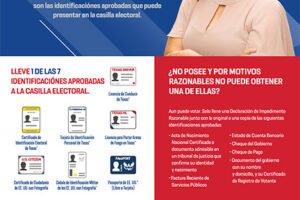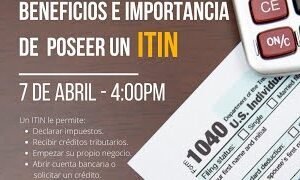Working without papers in the United States

Working without papers in the United States is a sensitive issue and has many legal implications. Here is an overview of the subject:
- Undocumented status: An individual who resides in the United States without proper documentation or after his or her visa has expired is considered an “undocumented” or “undocumented” person. This situation can arise for a variety of reasons, such as having crossed the border without going through an official point of entry or having remained in the country after the expiration of a temporary visa.
- Working without authorization: Working without valid authorization (e.g., without a work permit or green card) is illegal under U.S. immigration law. Undocumented individuals often face precarious working conditions, low wages and lack of benefits, as they lack the legal protection offered by formal labor contracts.
- Risks to the worker: Undocumented workers run the risk of being detained and deported if discovered by immigration authorities. In addition, they may be victims of labor abuse or exploitation, as some employers may take advantage of their vulnerable situation.
- Risks for the employer: Employing undocumented workers also has legal consequences for the employer. They can face fines, penalties and, in some cases, criminal prosecution for hiring people without proper documentation.
- Labor rights: Regardless of their immigration status, all workers in the United States, including undocumented workers, have labor rights. These rights include receiving at least the minimum wage, working in a safe environment and being protected against discrimination. However, lack of documentation can make it difficult to report labor violations for fear of retaliation or deportation.
- Immigration Reforms: Over the years, there have been discussions and proposals to reform the U.S. immigration system. Some proposals seek to provide a pathway to legalization for those already in the country and working without papers, but as of my last update in January 2022, a comprehensive solution has not been implemented.
If you are considering working in the U.S. or are already working without papers, it is essential to seek legal advice to understand your rights and the possible consequences of your situation.
What jobs can you get in the United States without papers?
Although working without proper documentation in the United States is illegal, many undocumented individuals find employment in sectors where rigorous background checks are not required or are done under the table. These are some of the common jobs often held by people without papers:
- Agriculture: Many undocumented workers find employment on farms, harvesting fruits, vegetables and other crops. The demand for labor in the agricultural sector often exceeds the supply of local workers willing to do the work.
- Construction: Workers without papers often find employment in construction, either in general labor or in specialties such as masonry, carpentry or painting.
- Domestic service: Some people work in private homes doing tasks such as cleaning, gardening, childcare or elderly care.
- Catering and hospitality: Undocumented workers often find employment in restaurants, either in the kitchen, as dishwashers or in other positions that do not require direct customer interaction.
- Landscaping: Many undocumented workers are employed in landscaping services, performing tasks such as pruning, planting and maintenance of gardens and lawns.
- Temporary or day labor: In some cities, workers gather at specific locations where employers pick them up for temporary jobs in construction, moving, gardening, among others.
- Fishing industry: In certain coastal areas, undocumented workers may find employment in the fishing industry, either on fishing boats or in processing plants.
- Manufacturing industries: Some undocumented workers find employment in factories, especially those that do not require rigorous employment eligibility checks.
It is important to mention that, although these jobs may be accessible to people without papers, workers often face precarious working conditions, wages below the legal minimum, lack of benefits and the constant risk of being caught and deported.
In addition, they may be more vulnerable to labor exploitation and abuse due to their immigration status.
What happens if I work without papers in the United States?
Working without papers in the United States involves a number of risks for both the employee and the employer. If an undocumented person works in the U.S., he or she faces the following consequences:
- Deportation: If a person is found to be in the country without proper permission and is working, he or she could be detained and face deportation proceedings.
- Re-entry ban: A person who has been deported may face a re-entry ban lasting several years, or even for life, depending on the circumstances of his or her case.
- Precarious working conditions: Lacking legal status, undocumented workers are more vulnerable to exploitation. They may receive wages below the legal minimum, have no access to employment benefits, face unsafe working conditions and have no ability to defend themselves against labor abuses for fear of being denounced.
- Lack of legal protection: Although undocumented workers have labor rights in the U.S., the lack of immigration status means that many do not report abuses or violations of their rights for fear of deportation.
- Tax implications: Working without papers often means that you are not paying taxes, which could have legal consequences. However, many undocumented workers actually pay taxes using an individual taxpayer identification number (ITIN) and not a social security number.
For the employer:
- Fines and penalties: If an employer is caught employing undocumented workers, it could face substantial fines and civil or criminal penalties.
- Audits: Authorities may conduct audits of employment records to verify that all employees have the right to work in the US.
- Reputation: Hiring undocumented workers can damage the reputation of a business, especially if the employer is found to be exploiting these workers.
Given the complexity and potential consequences of working without papers in the United States, it is essential that individuals seek legal advice and be informed of their rights and risks.
If you are looking for a paperless job near you, do not miss this article






